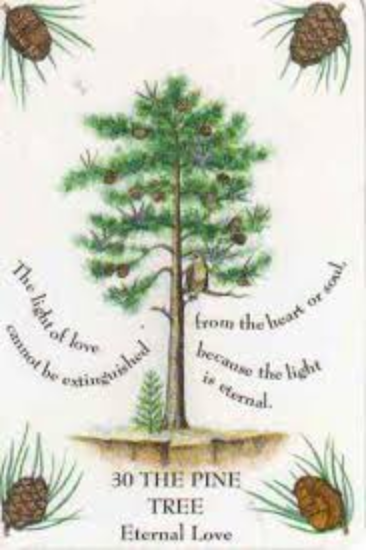
What Does the Pine Tree Symbolize in Christianity?
The pine tree, with its towering presence and evergreen foliage, holds a significant place in Christian symbolism, often representing themes of everlasting life, hope, and the enduring nature of faith. Its association with Christmas further amplifies its spiritual significance within the Christian tradition.
Everlasting Life
The evergreen nature of the Christmas tree, which retains its green foliage throughout the year, symbolizes the idea of everlasting life. This is often associated with the Christian belief in the eternal life offered through Jesus Christ. Just as the pine tree remains green even in the depths of winter, so too does the promise of eternal life remain constant and unwavering for believers.
Here's a table summarizing the symbolism:
| Pine Tree Characteristic | Symbolic Meaning |
|---|---|
| Evergreen foliage | Everlasting life through Christ |
| Retains green color in winter | Hope and enduring faith amidst adversity |
The use of evergreen trees during the winter solstice predates Christianity. Ancient cultures recognized the hardiness of these trees and saw them as symbols of hope during the darkest time of the year. The ability of evergreens to withstand the harshness of winter served as a reminder that spring would eventually return. This concept was adopted by early Christians and linked to the promise of resurrection and eternal life through Christ.
Tree of Life
The pine tree can also be interpreted as a symbol of the Tree of Life mentioned in the Bible. In the Garden of Eden, the Tree of Life represented God's provision for humanity and the promise of eternal life. While the specific type of tree is not identified, the pine's association with everlasting life makes it a fitting symbol for this significant biblical element.
Hope and Resilience
The pine tree's ability to thrive in challenging conditions also makes it a symbol of hope and resilience. Just as the pine tree stands tall and strong against winter storms, so too can Christians find strength and hope in their faith, even amidst life's difficulties. Its upright growth can be seen as an aspiration to reach towards heaven, seeking spiritual growth and connection with the divine.
The Christmas Connection
The use of pine trees as Christmas trees has further solidified their place in Christian tradition. While the origins of the Christmas tree are rooted in pre-Christian winter solstice celebrations, the tradition was readily adopted and given new meaning by Christians.
The decorated Christmas tree, often adorned with lights and ornaments, serves as a visual representation of the joy and celebration surrounding the birth of Jesus Christ. The star placed atop the tree is often interpreted as a symbol of the Star of Bethlehem, which guided the wise men to the birthplace of Jesus.
FAQs
What other trees are significant in Christianity?
Several trees hold symbolic meaning in Christianity. The olive tree represents peace and God's covenant with humanity. The cedar tree, known for its strength and durability, is a symbol of strength, nobility, and incorruptibility. The palm tree signifies victory, triumph, and peace. Each tree, with its unique characteristics, contributes to the rich tapestry of symbolism found within the Christian faith.
How did the tradition of the Christmas tree become popular?
The tradition of the Christmas tree as we know it today is believed to have originated in 16th-century Germany. It gained popularity among German Lutherans and gradually spread throughout Europe and eventually to North America. The tradition's association with joy, celebration, and the Christmas story contributed to its widespread adoption.
Do all Christian denominations use Christmas trees?
The use of Christmas trees is not universally practiced by all Christian denominations. Some more liturgical denominations may focus more on other symbols and traditions during the Christmas season. However, the Christmas tree remains a widely recognized and beloved symbol of Christmas for many Christians worldwide.